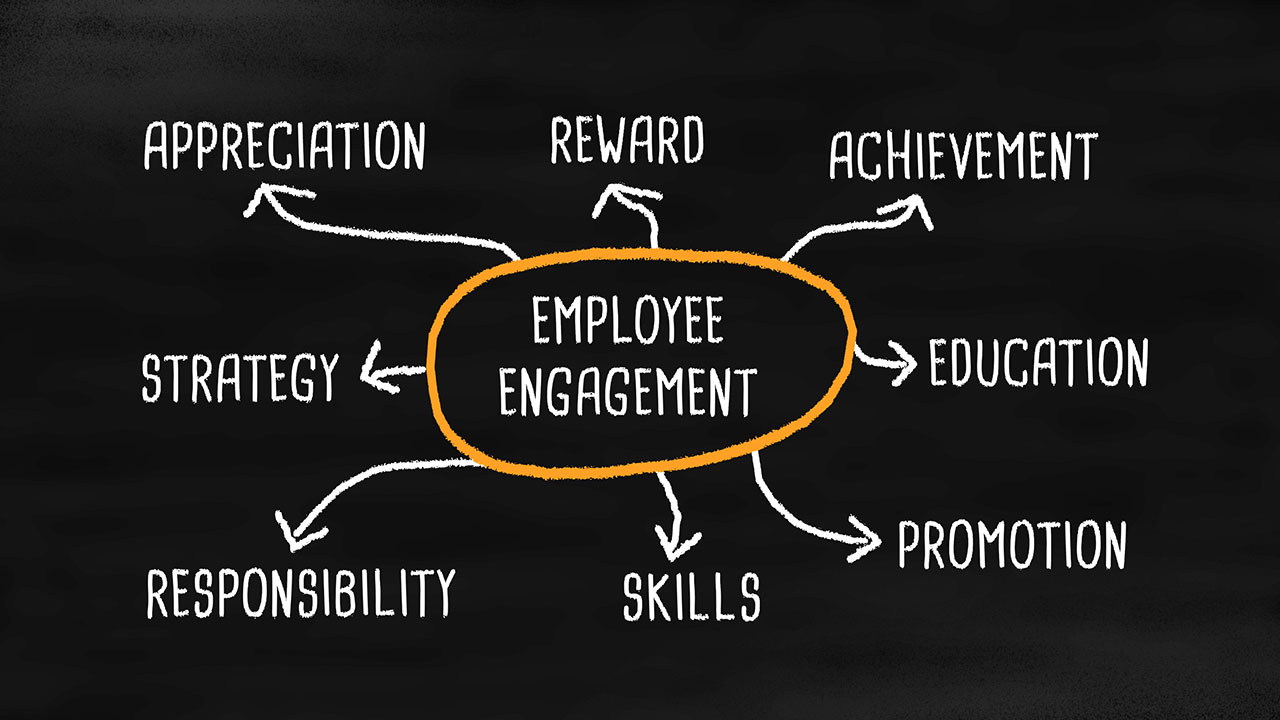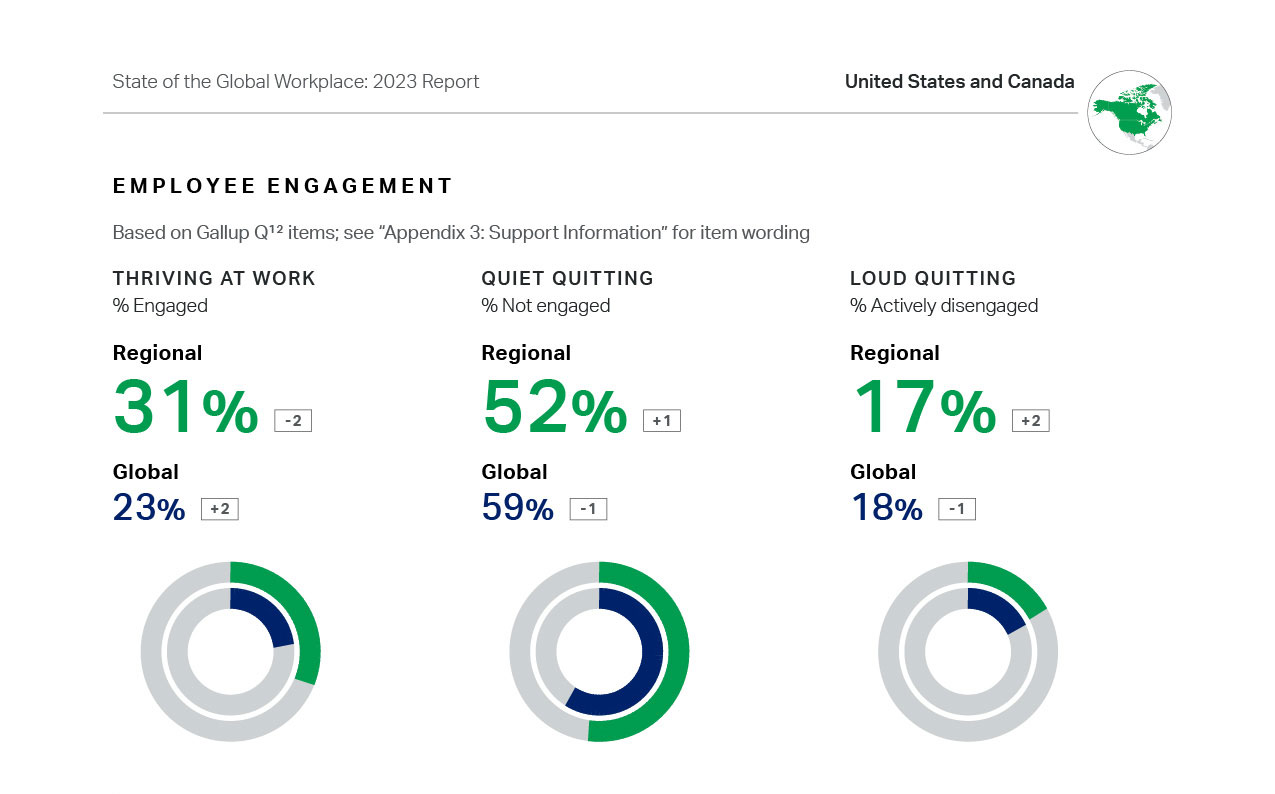How To Create a Culture of Employee Engagement?
Creating a culture of employee engagement is crucial for the success of any organization. It refers to the level of emotional commitment and dedication employees have toward their organization. It is a key factor that directly influences a company’s success and growth.

What Are Employee Engagement Strategies?
Employee engagement strategies are initiatives and practices implemented by organizations to create a positive work environment, foster a sense of commitment and dedication among employees, and enhance overall job satisfaction. Engaged employees are passionate about their work, leading to improved productivity, higher job satisfaction, and a positive impact on the overall work environment.
Why Does Employee Engagement Matter?
Employee engagement goes beyond satisfaction; it reflects the emotional commitment employees have towards their organization. Engaged employees are willing to go the extra mile, take ownership of their work, and contribute towards the organization’s goals.
According to Gallup’s recent State of the Workplace report
- 87% of engaged employees are more likely to stay with the organization, leading to reduced turnover and recruitment costs.
- Organizations with the highest rates of engaged employees are 21% more profitable, contributing to increased organizational performance.
- 87% of employees affirm a strong culture. A positive workplace culture increases revenue 4X, enhances collaboration and teamwork, and reduces absenteeism by 81%.
- Engaged employees produce 20% better outcomes than their colleagues and are more likely to be advocates for the organization, positively impacting its reputation.
- When employees are fully engaged, the occurrence of safety incidents decreases by a significant 64%.
- Engaged employees are more enthusiastic and passionate about their work, and they deliver a 10% increase in customer satisfaction.

Benefits of Employee Engagement
Organizations that prioritize employee engagement are not only beneficial for the employees, but also have a direct impact on their performance and overall success.

Increased Productivity
Employee engagement is crucial for enhancing productivity within the workplace. Engaged employees are more focused and motivated to perform their tasks efficiently, resulting in higher-quality work and increased output. When employees feel connected to their work and the company’s mission, they are more likely to go above and beyond to achieve success, ultimately leading to enhanced productivity.
Enhanced Job Satisfaction
A key benefit of employee engagement is the improvement in overall job satisfaction. Engaged employees are more likely to feel fulfilled by their work, resulting in higher levels of job satisfaction and lower turnover rates. When employees are engaged, they feel a sense of purpose and accomplishment, which contributes to a positive work environment and a more satisfied workforce.
Positive Work Environment
Employee engagement plays a significant role in shaping the overall work environment. Engaged employees are more likely to contribute positively to the culture of the organization, fostering teamwork, collaboration, and a supportive atmosphere. A positive work environment not only benefits the employees but also contributes to improved performance and success for the company.
Better Employee Retention Rate
Employee engagement also has a direct impact on employee retention. Engaged employees are more likely to remain loyal to their organization, reducing turnover rates and the associated costs of hiring and training new employees. When employees feel valued and engaged, they are more likely to stay with the company, leading to a stable and committed workforce.
Improved Employee Morale
Engaged employees often exhibit higher levels of morale within the workplace. When employees are engaged, they feel a sense of pride and ownership in their work, leading to increased morale and a positive attitude towards their responsibilities. This boost in morale has a ripple effect, contributing to a more vibrant and motivated workforce.
Enhanced Customer Satisfaction
Employee engagement indirectly impacts customer satisfaction. Engaged employees are more likely to provide superior customer service as they are motivated to represent their company positively. This, in turn, leads to improved customer satisfaction and loyalty, ultimately benefiting the organization’s reputation and bottom line.
Foster Innovation and Creativity
Engaged employees are more inclined to contribute innovative ideas and creative solutions to challenges. When employees feel connected to their work and the organization, they are more likely to think outside the box, leading to increased innovation and creativity within the company. This can result in a competitive edge and continuous improvement.
11 Employee Engagement Strategies That Deliver Results
Developing an effective employee engagement strategy involves a thoughtful and comprehensive approach that considers various aspects of the workplace environment and employee experience.
There are many strategies that can help improve employee engagement, but some of the most effective ones are:
1. Foster Communication and Collaboration
Effective communication is a cornerstone of employee engagement. Employees who identify with the company’s mission and vision are more likely to be engaged and loyal. Leaders should communicate the company’s core values openly and transparently with their employees, aligning them with their goals and actions. Regular feedback and dialogue help employees feel valued and connected to the organization’s mission.
2. Go the Extra Mile
Empowering employees to make decisions and take ownership of their tasks can significantly boost engagement. When employees feel trusted and empowered, they are more likely to be proactive and innovative in their roles. Providing autonomy also fosters a sense of accountability and responsibility.
3. Encourage Knowledge Sharing
Employees who share their expertise and learn from others feel more valued and connected to their colleagues. Knowledge sharing also fosters innovation, creativity, and problem-solving. You can promote knowledge sharing by creating a culture of learning, providing platforms for collaboration, and rewarding employees who contribute to the collective knowledge.
4. Make Recognition and Rewards Part of Your DNA
Recognizing and appreciating employee efforts is fundamental in fostering engagement. Whether through verbal praise, bonuses, or public acknowledgment, showing appreciation for hard work motivates employees to continue performing at their best. Peer-to-peer endorsements enable employees to acknowledge and recognize positive contributions, displays of organizational values, and desired behaviors. When employees feel appreciated, they tend to stay motivated and dedicated to their work. Creating reward and recognition programs that acknowledge and celebrate their contributions can boost employee engagement. This can include an employee of the month/year awards, peer-to-peer recognition awards, top performer awards, best innovator awards, customer service awards, quality assurance awards, and more. Monetary incentives or public recognition in team meetings can also inspire and excite the employees.
5. Offer Professional Development Opportunities
Employees who have a clear sense of direction and progression are more motivated and ambitious. Investing in the professional development of employees demonstrates their dedication to work. By providing career development opportunities through training and mentorship programs not only do their skills improve, but it also shows the organization’s investment in their long-term career success.
6. Foster Inclusive Workplace Culture
Diversity, equity, and inclusion lead to a higher level of employee engagement and trust. It is important to create an inclusive workplace culture that welcomes employees of diverse backgrounds respect and collaborates as a team to achieve the company’s goals.
7. Prioritize Work-Life Balance
Supporting employees’ well-being and work-life balance is crucial for maintaining high levels of engagement. Flexible work arrangements, mental health support, and wellness programs contribute to a positive work environment. When employees feel supported in managing their personal and professional lives, they are better able to engage fully in their work.
8. Promote Team Building & Collaboration
Embrace an inclusive workplace that promotes teamwork and collaboration. Encourage cross-functional collaboration and provide platforms for employees to collaborate, share knowledge, and exchange ideas. Organize team-building activities and social events to strengthen interpersonal relationships.
9. Identify Top Performers & Future Leaders
Establish a fair and transparent performance management system. Set clear performance goals and expectations, provide regular feedback and coaching, and conduct performance evaluations that recognize achievements and identify areas for improvement.
10. More Engaging Leadership
Encourage leaders and managers to lead by example and actively engage with employees. Support leadership development initiatives that equip managers with the necessary skills to support and motivate their teams effectively.
11. Ensure Employee’s Voice Is Heard
Conduct regular employee surveys, focus groups, or one-on-one feedback sessions to understand employee sentiments, needs, and concerns. Use this feedback to make necessary changes and improvements to foster employee engagement.
Implementing effective employee engagement strategies is essential for organizational success. However, employee engagement is an ongoing process that requires adaptability and responsiveness to the evolving needs of your workforce. Regularly reassess and adapt these strategies to ensure their continued effectiveness in fostering a motivated and engaged workforce.
Try OpsMaven
Opsmaven is the all-in-one HR platform that lets your organization effortlessly manage Recruitment, Payroll, Benefits Management, Policies and Compliance, and Employee Engagement. We provide reliable, seamless, and cost-efficient HR outsourcing services through a single point of contact to help your company succeed.
